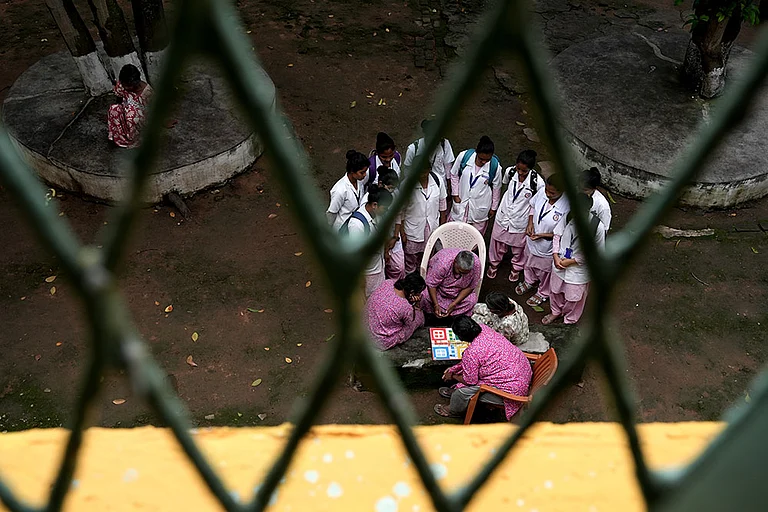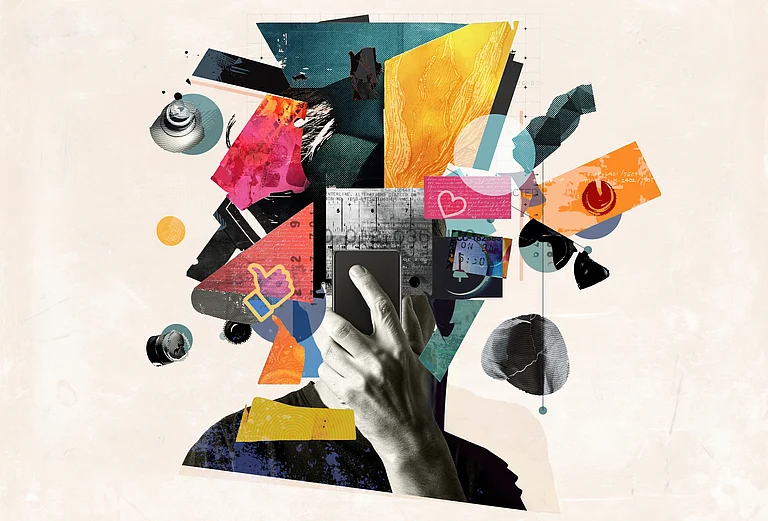India is the world’s second-most sleep-deprived country.
The “sleep economy,” which encompasses everything from mattresses to wearable devices, melatonin supplements, and more, is booming and is projected to reach $600 billion by 2025.
The causes for insomnia vary depending on age.
Is Sleep The New Health And Wealth?
India’s sleep crisis is fuelling a fast-growing wellness economy, where a good night’s rest is the new motif for health
India is the world’s second most sleep-deprived nation, with 60 per cent of Indian adults obtaining less than six hours of sleep every night, and most of the younger population suffering a sleep deficit. This is alarming because sleep serves multiple functions. It is critical for waking cognition—that is, the ability to think clearly, remain vigilant and alert, and sustain attention.
Sleep also plays a key role in emotional regulation, as our memories are consolidated during sleep. Sleep debt often causes grogginess during the day, inability to focus, stress eating, occasional giddiness, migraines and in the long term, can also lead to anxiety and depression.
The sun, nature’s greatest generator of melatonin, is being increasingly avoided due to long working hours and general screen addiction for work and other reasons. The less time people spend in the sun, the harder it is to fall asleep. It is no wonder that a decade ago, sleep deprivation was deemed a public health epidemic by the WHO.
In researching his MYP personal project, Rehaan, a grade 11 student at Kodaikanal International School, discovered that only 27 per cent of students in his study actually fell into optimal sleep patterns (of 8-10 hours of sleep).
A strong advocate for this sleep range, recommended by health organisations such as WHO, backed by numerous holistic and medical studies, he knew that a person had to sleep a certain number of hours to function well, but didn’t know why: the psychological and physiological science and logic behind it. His interest was piqued by observing more and more kids around him whose approach to sleep was radically different from the one he had grown up with.
Rehaan’s study revealed that sleep patterns were often influenced by their upbringing, culture or personal identity, leading him to further investigate the nuanced nature of sleep habits.
It may take a while before a person senses the gravity of a sleep disorder to seek medical help. Dr.Sudipta Mahto, a family physician practicing in the Lower Palani Hills (Perumalmalai and KC Patty region of Tamil Nadu), says, “There are fewer people who present directly with a complaint of insomnia but people often come with associated complaints of fatigue, low mood or anxiety or vague somatic symptoms aches and pain everywhere and from thereon it gets unmasked on a gentle probing during our consults.
The causes for insomnia vary depending on age. In older people, loneliness, empty nests, debts, financial anxiety, unsupportive children, having medical issues which cause frequent night awakenings (eg uncontrolled diabetes, there is frequent passing of urine) are common stressors causing insomnia.
The pandemic brought in a lot of changes in all our lives through remote working, schooling, increased screen time, digital connectivity, as well as an increase in levels of stress and anxiety. With technology advancing at a rapid pace, people are working in shifts not just in IT but also in other sectors, so the circadian rhythm of people is overall disrupted. But not to take cognisance of this is even worse.
For young people, working in shifts can disrupt their circadian rhythm. Additionally, the increased use of gadgets among the younger population, whether urban or rural, especially during bedtime hours, often causes trouble with sleep initiation. Disturbing news perpetuates too quickly now, and this causes anxiety and affects sleep in turn,” she adds.
Kabir, a grade 12 student at Heritage International School, Gurgaon, curates @sleepismysuperpower on Instagram, where he shares various insights and research about sleep. As someone who struggled to balance academics with his pursuit of theatre and sustained himself for months on just four hours of sleep, he found it hard to get back to a normal cycle, and that’s where his interest in neuroscience, and sleep in particular, began.
“Most people don’t prioritise sleep enough. In the pursuit of social, academic and other aspects, sleep always suffers.” He is currently working on a proposal for schools to have a slightly later start, instead of their 7:00 or 7:30 am start, especially for teenagers, in order to help them adjust to their circadian rhythm.
The “sleep economy,” which encompasses everything from mattresses to wearable devices, melatonin supplements, and more, is booming and is projected to reach $600 billion by 2025, with a forecasted increase to $790 billion by 2030. Consumers are seeking better rest through both high-tech and holistic solutions.
There are mattresses that track your sleep patterns, providing personalised insights into your sleep quality, or can even adjust firmness on each side to minimise partner disturbance, regulate temperature and adjust the elevation. But it's not just mattresses that are redefining the sleep economy. The last few years have seen an influx of sleep-tracking technology, with many companies entering the market, particularly in the realm of sleep apps.
At the same time, the global dietary supplements market is projected to grow to $327 billion by 2030, with sleep and stress-support products ranking among the fastest-growing categories.
On the question of what is a normal amount of sleep for humans, Atul Rajani, Founder and Chief Formulator at Be, a company that manufactures wellness supplements to promote sleep, says, “While we emphasise that quality is more important than pure quantity, the consensus for adults is that the normal amount of sleep falls within the 7 to 9-hour range. However, the global demand for better rest, driven by disrupted natural rest cycles, is surging. Your personal "normal" should be the duration that allows your sleep to be a repeatable, restorative practice, ensuring you achieve deep sleep and wake up feeling like yourself again.
Other novel sleep products include eye masks with unique features, weighted blankets, specially designed pillows for every sleep position, and much more. When you look at how many people struggle with sleep, it’s not surprising they’re willing to try all kinds of solutions. Japan has nap cafes and sleep sanctuaries; sleep tourism is the new spa-cation or stay-cation, with ‘napcations’ and ‘nap holidays’ on the rise as are luxury sleep retreats in places like Switzerland. Sleep is no longer a passive activity — it’s a thriving wellness industry.
Studies conducted by Dr. David F Dinges of the University of Pennyslvania (whose research focuses on neurobehavioral and physiological regulation of human health and behaviour by circadian and sleep biology) and other scientists have shown that cognitive performance and vigilant attention begin to decline fairly quickly after more than 16 hours of continuous wakefulness, and that sleep deficits from partial sleep deprivation can accumulate over time, resulting in a steady deterioration in alertness.
In India, where extended work hours and rising screen fatigue have disrupted natural rest cycles, the demand for simple, effective aids is surging—with all kinds of ‘natural’ sleep supplements formulated with melatonin, magnesium, ashwagandha, chamomile, and more. These allegedly help calm the mind, regulate the body’s rhythm, and promote recovery, offering a screen-free, science-backed ritual for better nights.
Alongside supplements, aromatherapy, temperature-friendly pyjamas, and ergonomically supportive pillows are gaining traction. These tactile, sensory-led cues, combined with natural aids, transform nightly routines into restorative, repeatable practices. Sleep is now the new self-care, ensuring you wake up feeling like yourself again. Ultimately, a well-rested human is a more productive, creative, and resilient one. The real reward is the gift of a good night's rest, and we have all earned it.




